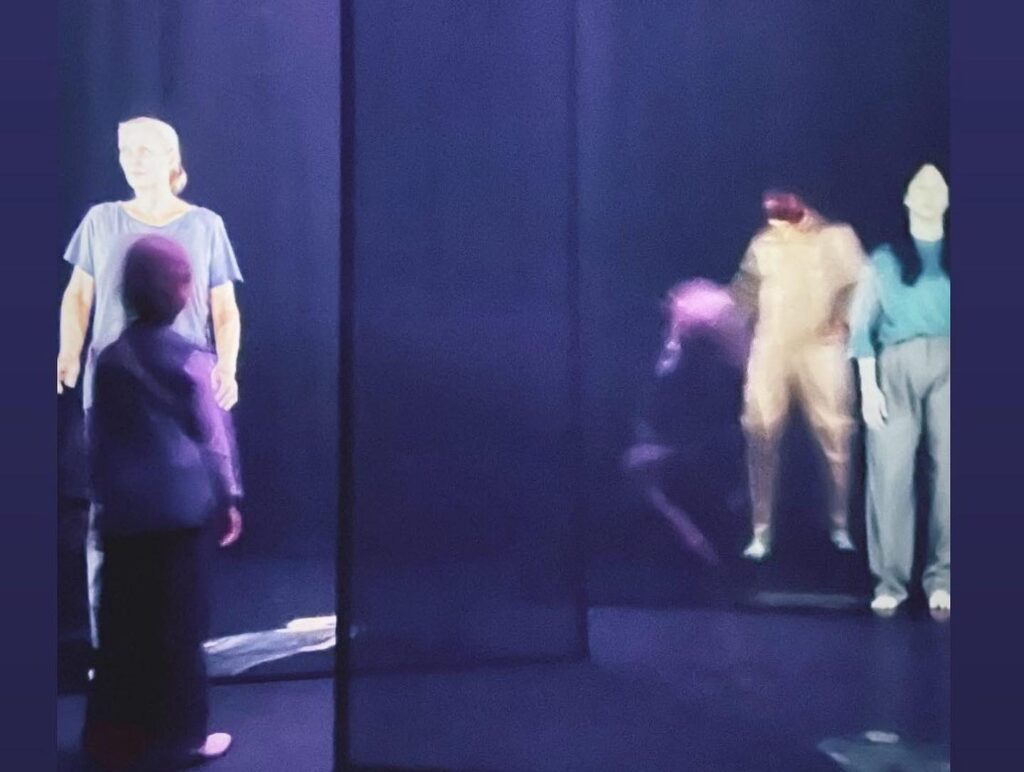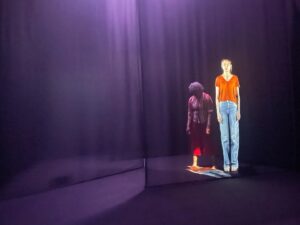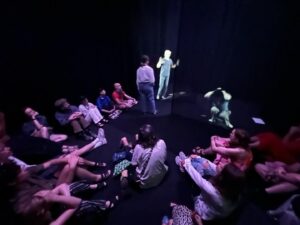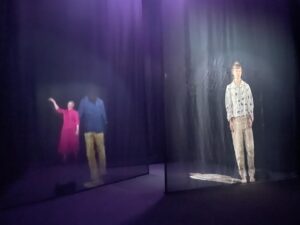
The exhibition Dirgy Dancing was presented at Art Lab Gnesta and Fullersta gård spring 2024, and at Dansmuseet autum 2024.
Exhibition text from Art Lab Gnesta:
The tall walls of the large exhibition hall have been covered in black curtains. On each of the bright, almost transparent veils hanging from the ceiling, films of dancers, deeply immersed in personal choreography, are projected.
Dirgy Dancing is a collection of lament dances by local dancers from different places, and is based on the dancers’ own experiences of grief. They are dances dedicated to people, memories, times and places, and a way of dealing with the unmentionable that has been lost. How can grief be accommodated in the body, how can it appear in movement?
Choreographer Lisen Ellard works through different notions of perception-expanding practices and has a penchant for the crooked and caring, often in relation to slowness and death. Together with the stage artist Mattias Lech, she has worked with themes around death and its rituals for several years, resulting in the performances Funeral and DÖDEN. With the dance anthology Dirgy Dancing, Lisen Ellard continues the investigation of loss, and the relationship between grief, memory and movement. The performance has previously been shown at, among others, Dansens hus in Stockholm, and at Art Lab Gnesta it takes the shape of an exhibition that is activated on special occasions through the presence of the dancers.
Caroline Malmström, curator Art Lab Gnesta
Dirgy Dancing by: Lisen Ellard
Artistic advice: Mattias Lech
Lament dances by: Efva Lilja, Abdoulaye Camara, Andrea Aja Svensson, Mohinur Nurmatova, Mike Gamble, Nathalie Ruiz, Sindri Runudde, Maia Means, Tarika Wahlberg, Conny Borg, Lisen Ellard, Elise Brewer, Johanna Chemnitz, Marie Kaae, Maria Naidu, Khamlane Halsackda, Julienne Doko.
Film/photo: Milja Rossi
Lighting design: Anton Andersson
Sound design: Elize Arvefjord
Technology/Projection: Peter Widell
Producer: Vilma Sohlberg och Sara Bergsmark
Administration: Smart
Illustration: Tove Dreiman
Supported by: Swedish Arts Council


